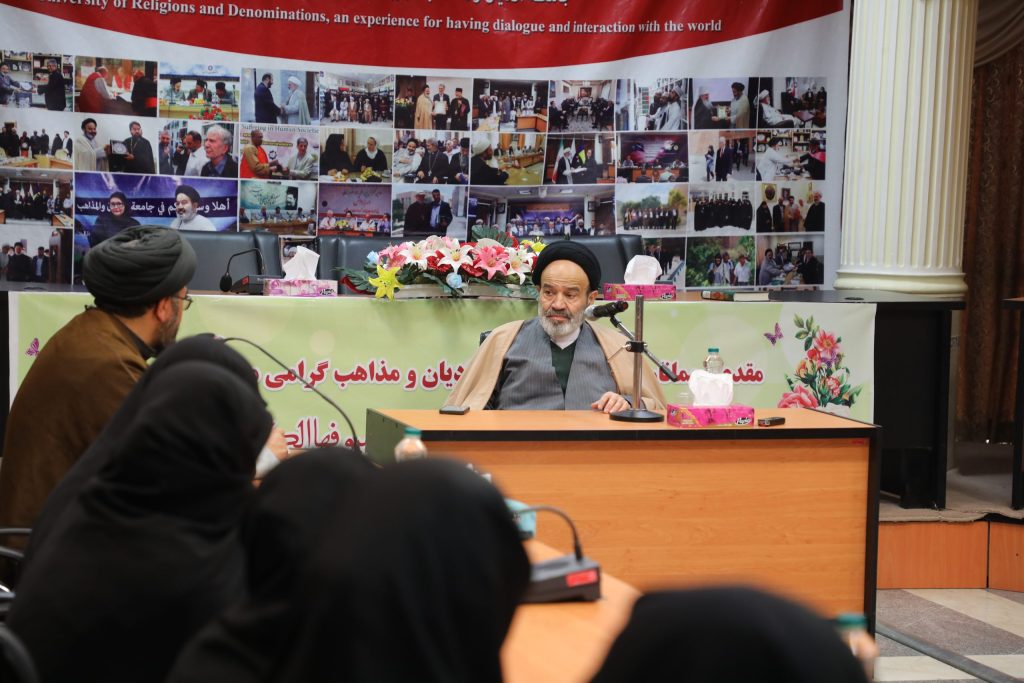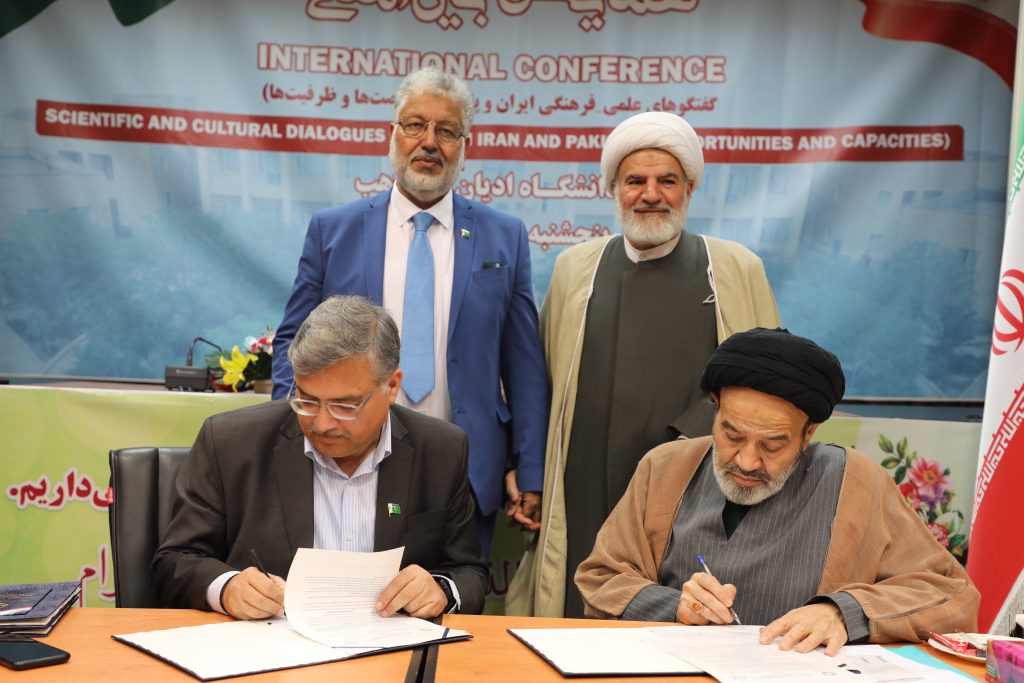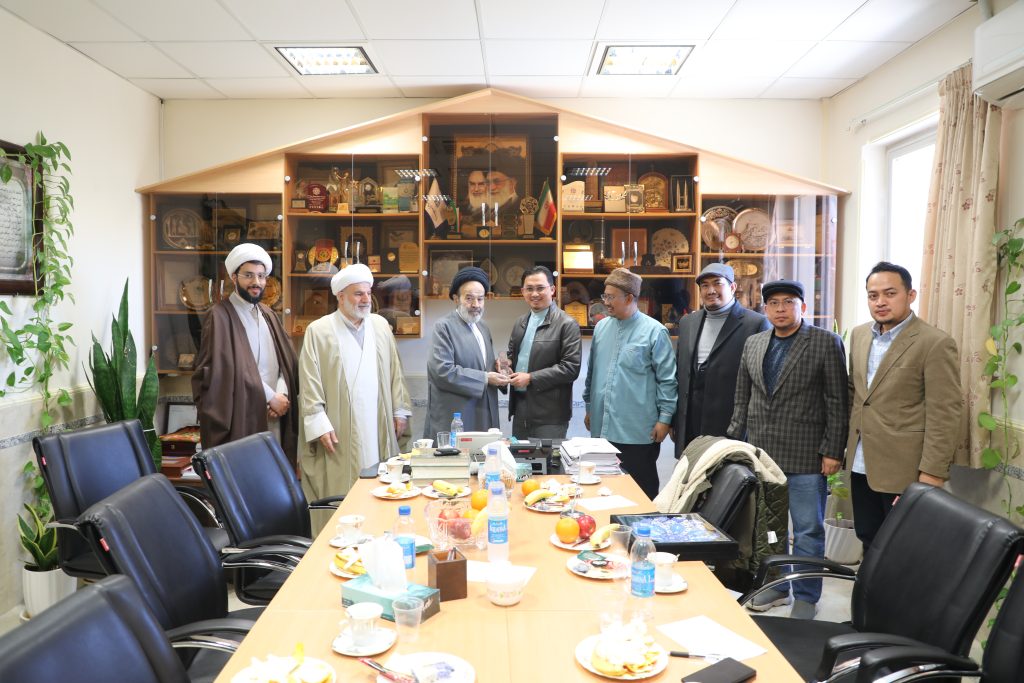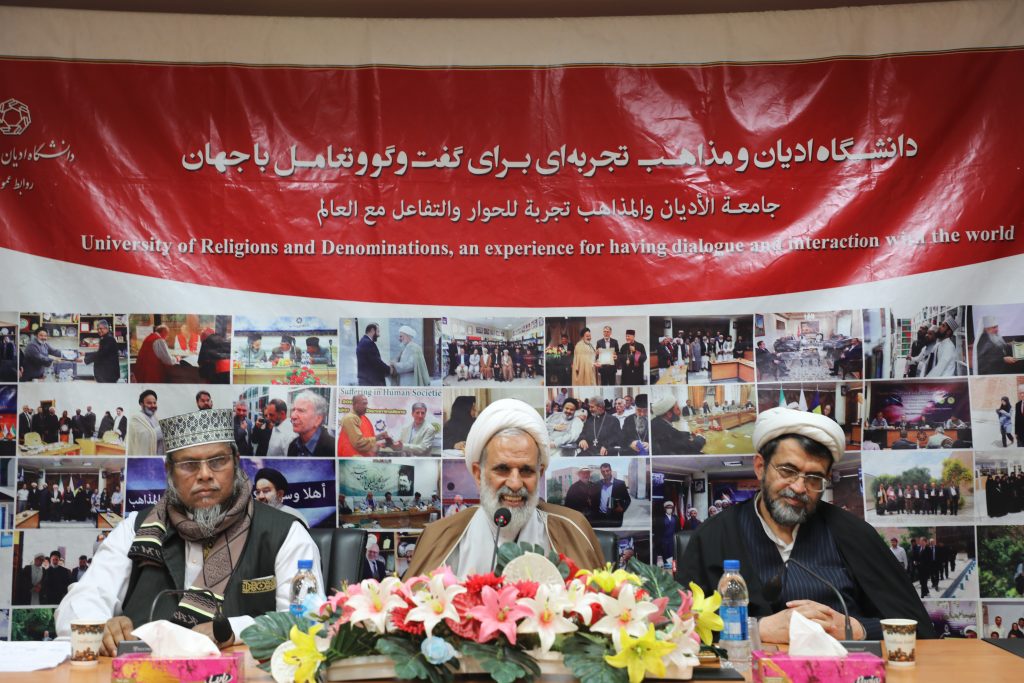Islamic and republic are two characteristics of the constitution of Islamic Republic of Iran
Islamic and Republic are the two pillars of the constitution of the Islamic Republic of Iran, and the most important difference between this constitution and the constitution of other countries is presence of Islam.
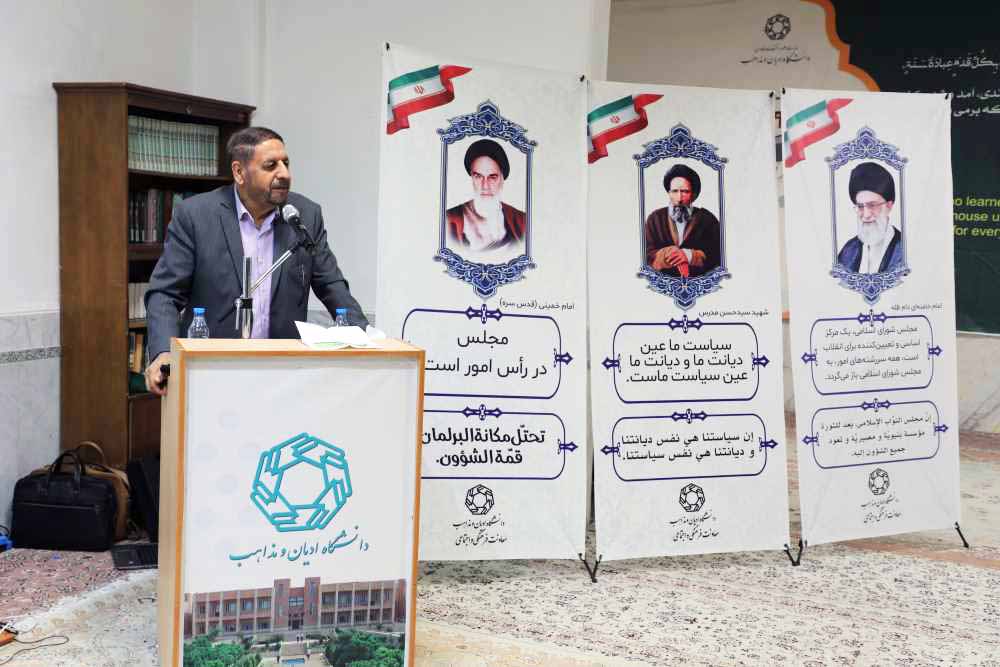
According to the University Public Relations Department, Dr. Kheirullah Parvin, a jurist member of the Guardian Council, in the commemorated day of council and approval of the constitution, and also appreciation of the top students of law Faculty of Religions and Denominations university, while praising of such ceremony at the University of Religions and Denominations said: The Constitution is the Covenant and the National Document of any country which the main frame of governance is determined in it.
He continued: The constitution of each country actually determines the political principles, structure, hierarchy, status and limits of the political power of a country and determine and guarantee the citizen rights of a country. The lists of affairs of a country and government are noticed in constitution that should be considered.
Dr. Parvin explained: There are differences in the constitution history in the world. It is said that after the revolutions that took place in the West, the customary situation was abandoned and the situation of the countries was determined by national documents and national documents. But the constitution seems go back to ancient Greece, where there was a republic. Therefore, it can be said that the Greek government states were control by the constitution.
“It is natural that at that time the government did not mean it today,” he said. The government was very small at that time and did not have the complexity of current governments, but it is reported that there were about 180 laws in the government state, someone says that the number of laws was not enough that could manage a government.
Jurist member of the Guardian Council explained: It seems that the nature of that constitution and the constitution that exist now in different countries is to be the same; But their extent is different. However, it cannot be claimed that this extent has changed the nature of the law, because both sets of laws are prepared for the order and management of a government or government city.
He continued: “It seems to be other theories in this case.” I think based on what Professor Hamidullah has done, referring to the constitution of governments goes back to the appearance of the religions. In his research, he says that with the research I have done so far, I could not find a more better document than the document that was written between the Prophet and the Jews of Medina in the era of the beloved Prophet of Islam.
Dr. Parvin explained: So in my opinion the first document that can be referred to as the constitution is this document. In his view, it was a covenant in 19 articles that can be referred to as constitution of the government city of Medina.
He continued: Concerning the contemporary situation, it is clear that when the US states were colonized by the British colonial, they were prepared and enforced a law on their borders and that law was taken to London by the US Contact Governor to confirm by second Charles the king of England, and after The approval became the royal charter and imperative. After US independence in 1788 this law was the base of states constitution of America, the law that is valid and acted on it in America yet.
Jurist member of the Guardian Council said: but the first constitution in Iran was the constitutional constitution, which was adopted in the constitutional movement in the 1906, which unfortunately ended up with Reza Khan’s government. This law was generally related to how managing the National Assembly council and the Senate council, because of that at the beginning it was famous to system letter. After some time constitutions supplement prepared and the assembly approved it. But for various reasons, the constitutional constitution was eventually don’t implemented in the country.
“But after the Islamic Revolution, it was thought different,” he continued. When the revolution won, Imam Khomeini emphasized the constitution a lot. Given that they relied on the role of the people from the beginning, despite there were various opinions and plans, he believed that if deal is divine legitimacy was to becoming and practiced in this country, it must have popular acceptance. He emphasized that people should be involved in the revolution and the constitution. Their role in the revolution was clear, so they must determine the type of system. We have to offer them and then vote and whatever they accepted must be performed.
He continued: The late Sadegh Tabataba’i, who was one of the referendum executives, in his memoirs of Imam Khomeini says, 12 days after the victory of the revolution, the late Haj Ahmad Agha Khomeini said that the referendum should be held as soon as possible. I met with Dr. Sadr Haj Seyyed Javadi at the Ministry of Interior and gave him the message of the Imam. The Minister of Interior said we do not have a healthy administrative organization in the country right now. The Imam requires needs a few months. I told Ahmad Agha during a phone call. After a short time, he called and said the Imam would say, if you do faster a little bit, that is done. I went to the Minister of Interior again and explained to them. He said, “Now that the world and your leadership and this revolution have accepted and recognized, what do we need for a referendum?” I am sure if you declare the “Islamic Republic” as the country’s political system, both our people and the world will accept it.
He continued: I conveyed this to the imam, and he said, “Don’t look at the present, what remains in history are historical facts.” You try to make the government organize this work as soon as possible. You prioritize your work on holding the referendum. This work was done with all its difficulties in the end, and the result was over 98% of participants voting for the Islamic Republic. After that, the Imam ordered the Revolutionary Council to write a constitution.
Dr. Parvin stated: There were two opinions about the draft constitution that was written in Paris. First, a parliament should be formed by the people’s vote to review and draft the constitution, and then a referendum, and second, to amend the same draft that was prepared in Paris by a group to be elected by the people’s vote, and the referendum, which was finally by Imams opinion the second was accepted.
He continued: The Constitution of the Islamic Republic of Iran not only don’t have any lacks from the constitutions of other countries, but it is much better in terms of law than some countries in the region and the world. The constitution of some countries is an adaptation and there is a contradiction in it, while this is not in the constitution of our country. The Constitution of the Islamic Republic of Iran was written at the beginning of the revolution by a council consisting of experts, scholars, capable and aware of the times. In the assembly where even religious minorities were present
Jurist member of the Guardian Council said: The Constitution of the Islamic Republic of Iran has two characteristics, one of which is related to its formal status and the other regarding its substantive status. Regarding the state of the form of being a republic and emphasizing the presence of the people in the government stage and voting in all the important affairs of the country. But its essential condition is that it is Islamic and all its laws must be according to Islamic scales. The substantive status of this law is one of the most important differences between the Constitution of the Islamic Republic of Iran and other laws.
He continued: Some people say that these two situations and characteristics are not compatible with each other. But the forty-year life of the Islamic Revolution showed that such a statement is not correct. Currently, in our constitution, the most popular participation and people’s voting for the affairs of the country is foreseen, and people go to the polls in many elections and choose their future. This shows that the people are active presence in the government and the country.
Dr. Parvin explained: The basis of the law is that it should be continues. No law determines its good end, but there is a revision of the law. In almost all the constitutions of the countries, something like this has been mentioned, which is almost too difficult. In the constitution of our country, such a thing is also considered, so if this law is to be changed, it should be based on the procedure that is considered in the constitution itself. Some of the principles of the constitution have explicitly mentioned this issue and explained it

